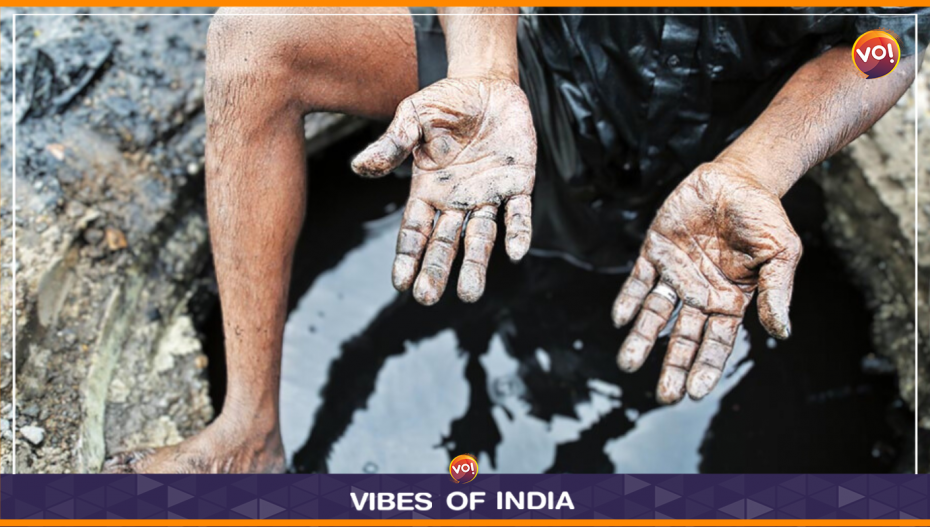Despite manual scavenging being declared a cognisable offence, the inhuman practice continues across Gujarat. As many as eight safai karamcharis have died while cleaning sewers in various parts of Gujarat, between March 22 to April 26 this year, raising concerns about the continuing deaths of manual scavengers despite the practice having been declared illegal across the country.
On Monday, calling for an “immediate stop to manual scavenging,” the Gujarat High Court ruled that “if any person is made to enter a manhole or sewer for cleaning, the head of the civic body concerned – municipal commissioner, municipality chief officer or gram panchayat sarpanch – will be held liable for violation of the law prohibiting this inhuman practice.”
In response to a PIL filed by Bharuch-based “Manav Garima,” an NGO seeking to end the practice and fighting for payment of proper compensation for such deaths, the bench of acting Chief Justice A J Desai and Justice Biren Vaishav ordered the state government to stop the practice immediately. The court has set June 19 as the next date of hearing.
In Rajkot, two died on March 22, in Dahej three died on April 3, later two died in Dholka on April 23 and one more death was reported from Tharad in north Gujarat on April 26.
“We make it clear if any worker – whose service is availed of either by a municipal corporation, or a municipality or by gram panchayat – is asked to clean sewers in areas concerned, the commissioner of municipal corporation concerned or chief officer of the municipality and sarpanch of the gram panchayat concerned shall be held liable for action since such activities have been banned by a government resolution of 2014,” ruled the HC.
The NGO also petitioned for compensation in many cases where workers died after being made to enter sewers. The government, however, stated that of the 152 such cases, compensation had been disbursed to 137. The HC ordered the state government to pay compensation to the legal heirs of the deceased workers by the next hearing.
Last month, advocate S.H. Iyer requested the HC for an early hearing of the case, saying many workers lost their lives recently. During the hearing on Monday, acting Justice CJ Desai noted: “Such types of activities are immediately required to be stopped.”
In defence, the state government submitted that government bodies do not indulge in these practices and that they are carried out by private contractors.
How many people died cleaning sewers in India?
Between 1993 and January 2020, the National Commission for Safai Karamcharis (NCSK) recorded 920 deaths of workers cleaning sewers based on data from state governments. Tamil Nadu, Gujarat and Uttar Pradesh accounted for half.
Supreme Court directed government to end manual scavenging
All incidents occurred when the workers entered the sewer lines, without protective gears, to clean manually and died of asphyxiation or because of inhaling poisonous gases. All workers who died were hired by the private contractors who are roped in by the civic bodies or government agencies to outsource the work related to maintenance of underground sewer lines.
In Gujarat, as per the figures shared by the state government in the Assembly recently, as many as 11 people died while cleaning sewer lines in last two years in addition to the eight recent deaths. The numbers were shared by Social Justice and Empowerment Minister Bhanuben Babariya in March this year.
However, social activists working for the rights of the scavengers and community leaders from the Dalit outfits dispute the State government figures and claim that the real numbers are significantly higher. Technology based solutions like sewer cleaning trucks and robotic machines can be used to replace manual scavenging.
Also Read: Ati Vishisht Sevak Marshal Tiwari Appointed AOC South Western Air Command













